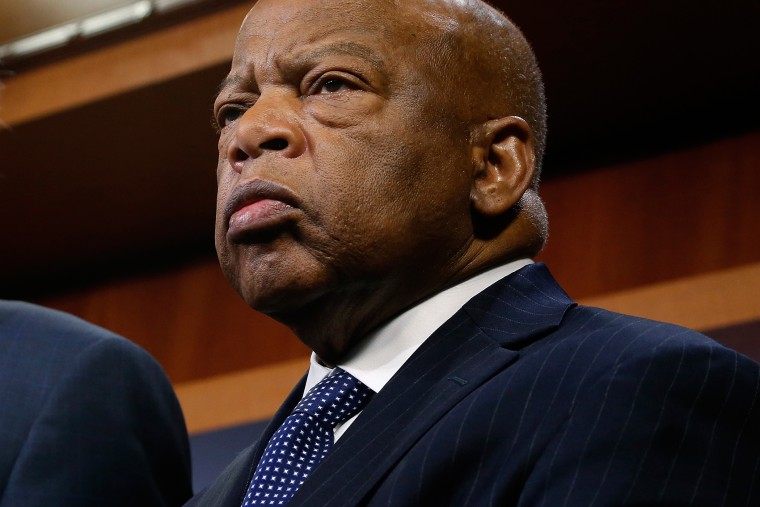Georgia Democratic Rep. John Lewis is standing by his opposition to President Obama's nomination of Michael Boggs to be a federal judge.
Liberal activists protesting the Boggs nomination began scratching their heads on Sunday when they heard that Lewis, one of their most influential advocates, seemed to have changed his mind. In a CNN interview, California Democratic Senator Dianne Feinstein said Lewis had told her that the deal Obama struck with Republican Senators from Georgia to push through a right-leaning group of judges was "a good ticket."
Lewis is one of the most important surviving leaders of the civil rights movement, and was one of the earliest to protest Boggs' nomination. Boggs, a conservative Democrat, has drawn the fire of liberal groups because as a state legislator, he supported restrictions on abortion, voted for a referendum to ban same-sex marriage, and backed keeping a Confederate symbol on the Georgia state flag. A number of prominent Democratic Senators, from Majority Leader Harry Reid to Majority Whip Dick Durbin, have implied their votes for or against Boggs will hinge on Lewis' counsel.
Lewis however, said Monday he's standing firm against Boggs.
"I have tried to refrain from making public statements out of respect for my colleagues and the Senate process. I believe it is important to allow each candidate to be evaluated according to his or her own merits and to allow the Senate judicial nomination process to take its course. This willingness to permit due process is all that I have indicated in any conversation I may have had with my colleagues. I did not at any time indicate my support for the Boggs nomination or say that he had the backing of the African-American community in Georgia," Lewis said in a statement released by his office Monday afternoon. "Based on the evidence revealed during this hearing, I do not support the confirmation of Michael Boggs to the federal bench. His record is in direct opposition to everything I have stood for during my career, and his misrepresentation of that record to the committee is even more troubling. The testimony suggests Boggs may allow his personal political leanings to influence his impartiality on the bench. I do not have a vote in the Senate, but if I did I would vote against the confirmation of Michael Boggs."
As to why a nominee with Boggs's views was ever put forth in the first place, even without the filibuster, Senators can exert significant influence over nominees to federal courts in their states. Senators can quietly veto potential nominees through the blue-slip process, an old tradition through which Senators refuse to return a blue slip of paper given to them by the head of the judiciary committee, which indicates their disapproval of a potential nominee. Because Georgia's Senators are both Republicans, the administration had to strike a deal in order to fill the empty seats on the federal bench in that state, and that involved putting forth a relatively conservative slate of nominees.
Rumors that Lewis had made an about face drew some criticism Monday. Democratic Georgia Rep. David Scott tweeted that "if this is true, then Rep Lewis is a turncoat who has betrayed African-Americans, women and gays."
Though Lewis statement did not mention Scott by name, his statement did appear to contain an implicit retort to Scott. "I have fought long and hard and even put my life on the line for the cause of equal rights and social justice," Lewis' statement read. "My commitment to these ideals has never changed, and my record is solid and unwavering. I take a back-seat to no one and have been at the forefront for decades in defense of the right to marry, a women's right to choose, and the imperative of non-violence as a means of dissent."
